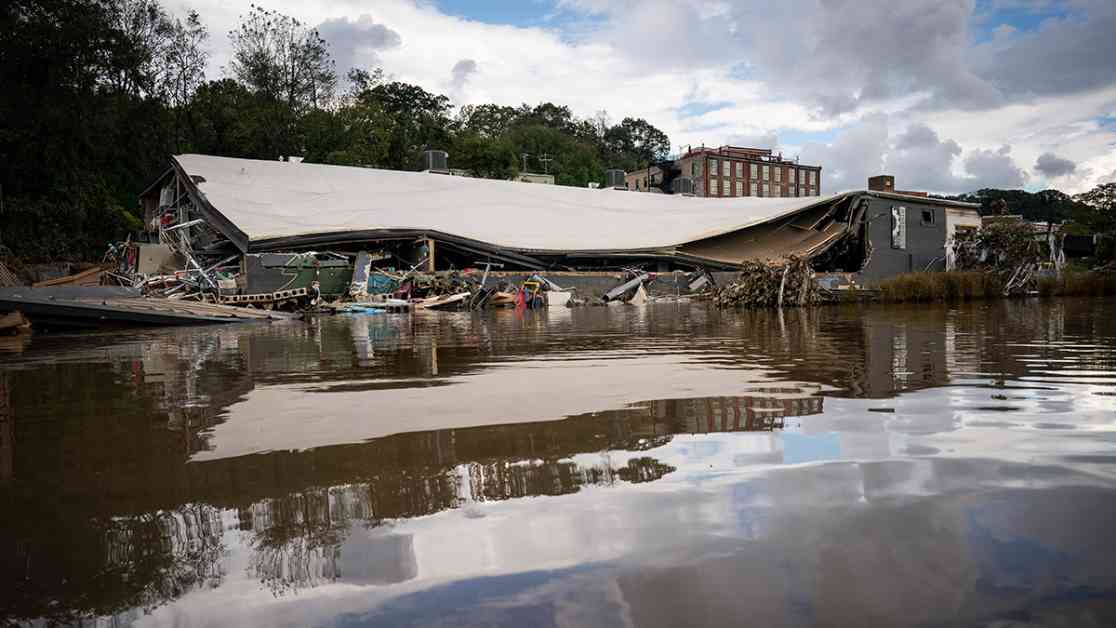The aftermath of Hurricane Helene in North Carolina was devastating, with widespread destruction and loss of life. The storm left a trail of splintered houses, crushed cargo containers, and flooded highways in one of the worst storms in U.S. history, with the death toll exceeding 120.
Residents in western North Carolina found themselves stranded by washed-out roads, lack of power, and limited communication options, leading to a crisis situation. They lined up for fresh water and an opportunity to contact their loved ones to assure them of their safety days after the storm hit.
The death toll rose as emergency workers reached isolated areas affected by collapsed roads, flooding, and other damage. The White House homeland security adviser mentioned that up to 600 people may still be unaccounted for, with fears that some may have perished.
President Joe Biden announced plans to visit North Carolina to meet with officials and assess the damage caused by the hurricane. He pledged federal support for the affected residents in the Southeast, emphasizing that assistance would be provided for as long as necessary.
The rescue operation in Tennessee to save people stranded on the roof of a hospital highlighted the urgency of the situation. Government officials and aid groups worked tirelessly to deliver essential supplies, including food and water, using various means such as air, truck, and even mule transport to reach the hardest-hit areas.
The scenes of destruction and desperation were heartbreaking, with overturned boats, damaged infrastructure, and displaced families seeking refuge and assistance. The outpouring of support from volunteers and community members was evident as people came together to share resources, comfort one another, and assist in the recovery efforts.
Asheville and its surrounding mountain towns faced significant challenges due to the storm. Major routes were blocked by mudslides, and the water system was severely impacted, leading to water scarcity. Rebuilding efforts were expected to be lengthy and arduous, with many homes and properties lost in the disaster.
The impact of Hurricane Helene extended beyond North Carolina, affecting several Southeastern states with flooding, power outages, and structural damage. The storm’s intensity and rapid development underscored the threat posed by climate change, which can fuel severe weather events like hurricanes.
As communities in the region grappled with the aftermath of the storm, the support of emergency responders, volunteers, and aid organizations was crucial in providing relief and assistance to those in need. The resilience and solidarity displayed in the face of adversity demonstrated the strength and compassion of the human spirit amidst tragedy.


